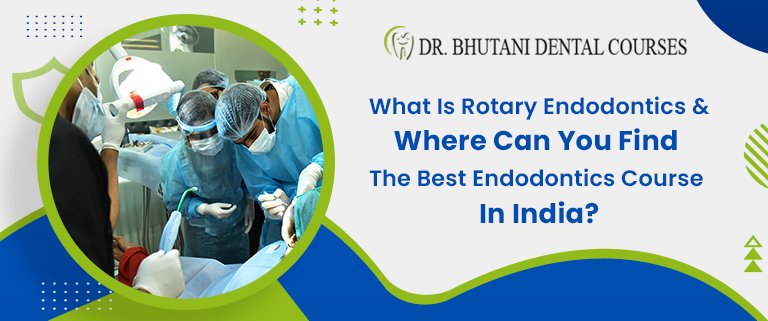Are you tired of traditional endodontics methods that are time-consuming and painful? It’s time to explore the world of Rotary endodontics courses, a less invasive technique that uses electric handpieces to clean root canals efficiently. But where can you find the best Endodontic Courses in India? Don’t worry; we’ve got you covered! In this blog post, we’ll explain what rotary endodontics is, its benefits over conventional methods, and where you can enroll for an excellent learning experience in India. Let’s dive in!
Introduction to Rotary Endodontics
Endodontics is a branch of dentistry that deals with the diagnosis and treatment of diseases of the pulp or root canal of the tooth. Rotary endodontics is a relatively new technique that uses a handpiece with a rotating file to clean and shape the root canal. This approach is faster and more efficient than traditional manual techniques, and it often results in a better outcome for the patient.
If you are considering pursuing a career in endodontics, it is important to find a reputable training program. The best Endodontics courses in India provide students with the knowledge and skills they need to succeed in this growing field. These programs typically include both didactic and clinical instruction, covering topics such as anatomy, physiology, pathology, radiology, pharmacology, and ethics.
Types of Rotary Endodontic Procedures
Endodontic procedures can broadly be classified into two categories:
surgeries and nonsurgical procedures.
Surgeries involve opening up the tooth to access the root canal so that it can be cleaned out and repaired. Nonsurgical procedures are less invasive and can be done with just alocal anesthetic.
The most common type of rotary endodontic procedure is a root canal, which is used to treat an infection at the root of a tooth. During a root canal, the infected tissue is removed and the root canal is sealed. This helps to prevent further infection and damage to the tooth.
Other types of rotary endodontic procedures include apicoectomies, which are used to treat an infection at the tip of the root; and pulpotomies, which are used to treat an infection in the pulp (the soft tissue inside the tooth).
Where can I find the Best Endodontic Course in India?
If you are looking for the best endodontic course in India, there are many options available. You can find plenty of courses offered by different institutes and universities.
The best way to select an endodontic course is to first check the curriculum and make sure that it covers all the aspects of rotary endodontics.
Once you have shortlisted a few courses, you can then compare the fees and duration of each course. Choose the one that best suits your needs and budget.There are many institutes that offer rotary endodontic courses in India but not all of them may be suitable for you. It is important to select a course from a reputable institute.at Dr Bhutani Dental Courses in Delhi, have taken a pledge of revolutionizing how dentistry education is provided in India.
Once you have completed your endodontic course, you will be able to perform various root canal treatments using the latest techniques and equipment. You will also be able to counsel patients about preventive measures that they can take to avoid dental caries and other oral problems.
Qualifications Needed to Pursue an Endodontic Course in India
An endodontic courses in India requires students to possess a degree in dental surgery from a recognized university. In addition, students must have completed one year of clinical training in an accredited dental college. Those who wish to specialize in endodontics must also complete a three-year postgraduate residency program in an accredited hospital.
Degrees & Certificate Programs Available for Endodontics
There are many different degrees and certificate programs available for endodontics. Some programs may focus on general endodontics, while others may specialize in a specific area such as Pediatric Endodontics or Traumatology. It is important to choose a program that best fits your needs and interests.
Also Read:- Why Choose Endodontic Courses After BDS?

